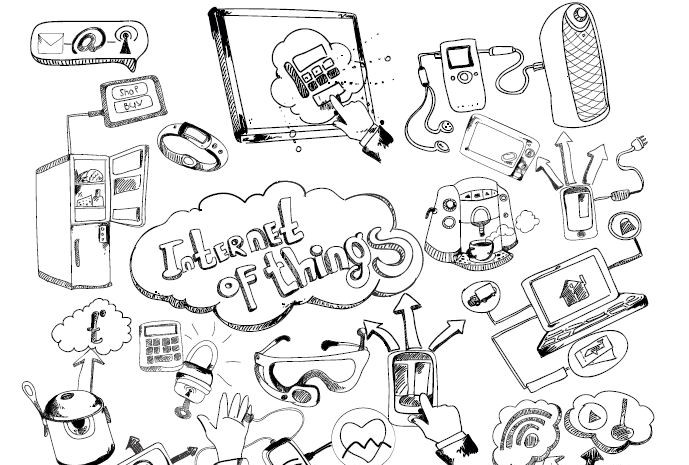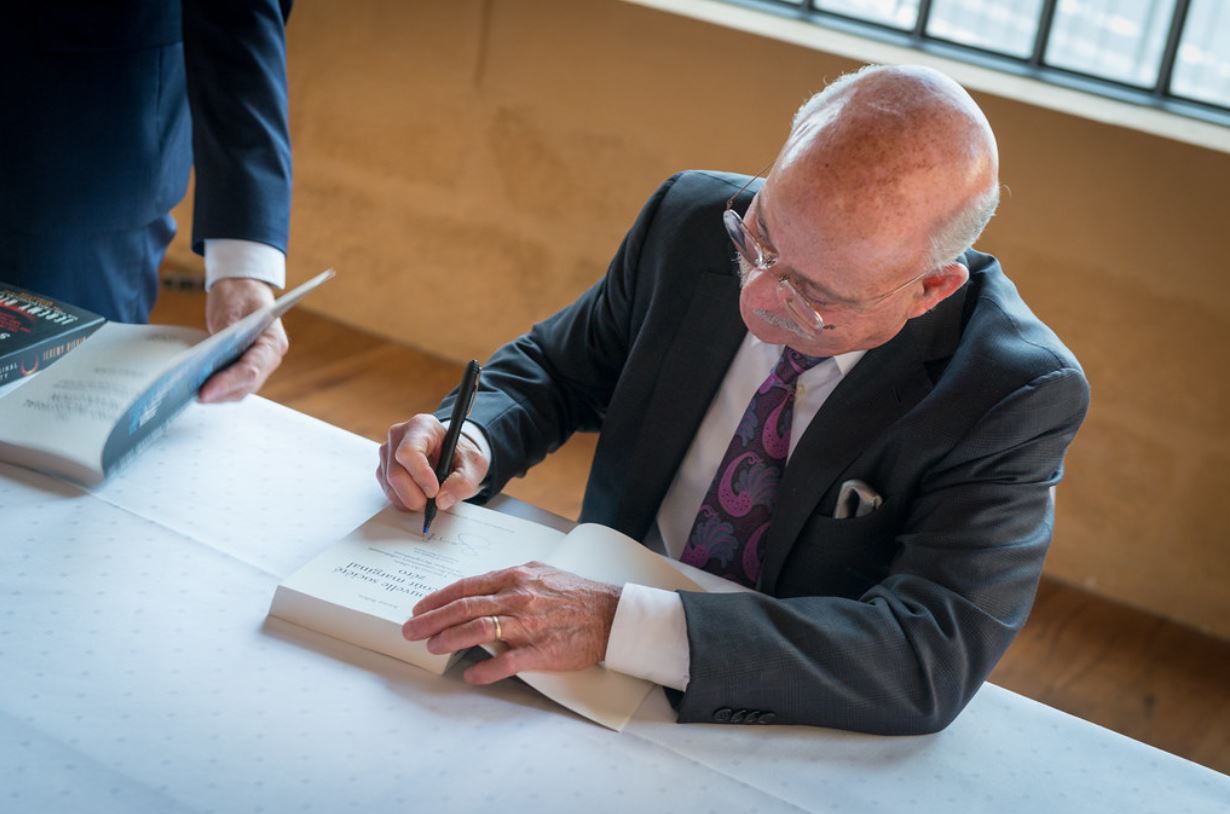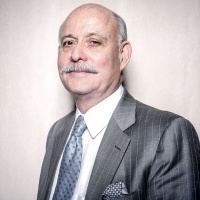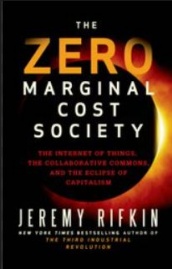Jeremy Rifkin: The Architect of the 3rd Industrial Revolution

INTERVIEW
Sustainability MAG: In your best selling book, you have conceptualized the emergence of a “Third Industrial Revolution”. What are the triggers of this economic paradigm shift?
Jeremy Rifkin: What’s happening now is that GDP is slowing in every single country. Unemployment is extremely high everywhere especially among the younger generation. What we are beginning to see is the sunset of one of the great economic eras in history, but we are also beginning to see the sunrise of one new economic paradigm that has the potential to democratize the economic life and create an ecologically sustainable society.
If we know the triggers, we get a good idea of what Luxembourg and every other region in the world needs to do to move to the next stage.
When we look at all the great economic paradigm shifts in history, they share a common denominator. At a particular point of time, three technologies emerge and converge. They create an infrastructure that changes the way we manage, power and move economic activity across society. What are those technologies? New communication technologies, new sources of energy, new modes of transportation.
Today, we are seeing the end of the 2nd Industrial Revolution which took the entire world to the 21st century and basically peaked in July 2008, when oil hit $147 a barrel on world markets. The global economy shut down because everything in the 2nd industrial revolution relied on fossil fuels: that means power, transport, heat, light, fertilizers, pesticides, construction materials, fibers, pharmaceutical products, etc. We are now witnessing the end of the oil age.
We are beginning to see the early beginning of a Third Industrial Revolution.
The communication internet is converging with a renewable energy internet and automated, GPS-guided and very soon driverless transportation and logistics internet: the great 3 internets in one internet system. This is a super internet with a new platform called internet of things.

How is this Internet of Things major tidal wave going to revolutionize all sectors and fundamentally question existing business models?
We have about 15 billion sensors out there already now, in agriculture fields, factories, warehouses, distribution centers, smart roads, smart vehicles, retail stores and smart homes. We are embedding sensors in every device, every machine, every appliance. These sensors can monitor real-time economic data and send it across this internet of things platform, through the communication, energy and transport internets to manage, power and move the economic activity.
By 2030, every device will be able to send data and converse with other devices and with every human being. The economic system will act almost like an external global brain. This has a huge potential benefit for humanity and for the planet because, for the first time, the human race will be able to directly engage each other in economic life, and eliminate much of the vertically integrated giant global companies of the 19th or 20th century.
In the next 15 years, every single person in the planet will be connected. Anyone will be able to access this internet of things data bank at almost zero marginal cost. You just need a smart phone and a service provider. This is already happening and giving rise to a new economic system called the sharing economy.
How powerful is this sharing economy new model?
It is a remarkable turning point. Capitalism is going to be fundamentally transformed by the sharing economy, which is going to be an equal player by 2050 in an hybrid economic system, part exchange economy with capitalist markets, part sharing economy with collaborative commons.
A new category is emerging: the prosumers, who produce, consume, share goods with each other at almost zero marginal cost and for free outside the capitalist market in a sharing economy. The communication internet is now mature. Right now, young people don’t buy CDs because they are streaming music, they’re not subscribing a television service or buying TV because they have you tube videos and it’s free on the internet; they‘re not subscribing newspaper magazines because they get free news; they’re creating their own knowledge on sites such as Wikipedia; some of them are not attending university courses anymore as they get free credits from famous universities with on-line courses. All of this at almost zero marginal cost. None of that is in GDP but it is in quality of life.
With the internet of things, this shift goes beyond the virtual world and affects the physical world too. People are not only sharing now their news, entertainment, knowledge, they are now sharing their energy with the energy collaboratives, they are now sharing their transportation and they are now setting up their websites to share their children’s toys, equipment, clothes, their apartments, their homes, etc.
One example: in Germany, we thought the major power companies in Germany were invincible; but what happened to them in the last 10 years is what happened to the music, newspaper, book publishing and media industries. Millions of small players came together and created collaborative shared commons, producing all this new energy and selling it back to the grid. The four power energy firms are all together now producing less than 7% of the energy of the Third Industrial Revolution and it is going to be less and less. Vertically integrated giants can’t compete. The capitalist market will not disappear but it will have to find a way to create value in a new sharing economy.
With an economic system in which the production of goods and services is heading towards zero marginal cost, the concept of work itself is completely revisited. How do you imagine tomorrow’s “worker”? Will the term itself become obsolete?
In my book in 1995 The end of work, I said: We are moving to an automated world. In the long run we are automating the capitalist market with high unemployment rates and we will need to rethink the definition of work with the emergence of prosumers.
But in the short run, there is one last 30 to 40-year period with massive employment. We have to lay out the infrastructure for the internet of things platform for the 3rd industrial revolution. That means every single building in the country will have to be retrofitted over 30 years before you can turn them into micro power plants. Renewable energy technology devices need to be manufactured , installed on all buildings. The electricity grid will have to be transformed to get smart and digitalized. Every building needs to have an advanced meter installed to be able to manage the production of energy. Transportation grids will be transformed with new GPS-automated driverless,electrical vehicles networks and charging stations in every parking spaces. Smart roads systems need to be set up.
It requires a lot of labor intensity to lay out the infrastructure for digitalized communication, energy and transports on top of an internet of things platform. That means two more generations of massive employment. But then, it creates an automated space, run by very small workforces, analytics and big data.
Then what will be everyone doing?
The work is moving to the civil society. It’s moving to the social economy. It’s moving to the sharing economy, to the non-profit sector which is the fastest growing employer in the world because that’s the sector that requires humans to create social capital. You can have technology and automation but you still need humans: healthcare, education, childcare centers, services for the elderly, culture, environmental remediation, etc.
The non-profit sector’ revenue is growing tremendously. It is already 10% of employment in the US and up to 15% of the employment in Europe. It’s going to get higher and higher everywhere in the world. Economists used to think that this sector was completely relying on government contracts and philanthropy. This is not the case anymore: governments are reducing their subsidies to non-profit organizations and private companies get more money from public contracts than NPOs. Over half of the income of the fast growing non-profit sector comes now from services fees, enabling it to hire more and more people. We are seeing the rise of the social economy.

Jeremy Rifkin at the Luxembourg Sustainability Forum 2015.
For the time being, social solidarity is largely ensured by levies on profits and salaries. In view of the current system’s anticipated collapse and the success of the Sharing Economy which demonetizes exchanges, how do you see the prospects for financing social solidarity?
I think we are going to see much more of a mosaic, where a large amount of the services will be provided by the commons themselves.
I will give you one example: the tracking of diseases. In the USA, we have a center for disease control; they are tracking epidemics and it costs a lot of money to finance this. However, now Facebook, Google and Twitter with their data can track diseases in real-time when people are looking for their symptoms on the internet. This can be immediately on the media for people to get their inoculation or get quarantined. And again, you can track the disease and people can be aware of this at zero marginal cost. There are so many examples like this. Crowdfunding plays a major role too. For instance, a lot of scientists are now going on crowdfunding sites to finance their research.
There will be an increasing amount of services that will go to the commons. People will share their resources, their talents, their time in collaborative commons. This is most of time not money based. None of this shows up in GDP but it improves our quality of life. So we have to rethink it all.
I don’t think that the capitalist system will ‘entirely’ disappear at all, There will be a lot of goods and services that will still be in a very high efficiency high productivity low marginal cost. But the sharing economy will play an important role in how we approach social solidarity.
What do you think are Luxembourg’s assets as a land of transition?
I think Luxembourg has a really significant asset because it is probably the most integrated high tech country in Europe right now: broadband, wifi, big data, etc. The Grand-Duchy also is a commercial hub for the EU. Companies in the country can take advantage of this and could be involved in a transition into an internet of things infrastructure. Telecom, cable, ICT, consumer electronics, transport, logistics, electricity, power generation and distribution, manufacturing or retail companies, all those are big players in Luxembourg.
And of course there is a financial community, which will help fund the buildout of this infrastructure. One frequently asked question that is raised is: where is the money to finance all this? Actually, the problem is not the money, it is where it is going. We need a shift in priorities. And this is when the financial community comes in. Big time.
We need to prioritize existing private and public investments. In 2012 in EU, we spent 741 billions equivalent US$ to patch up infrastructures of the 2nd Industrial Revolution old plateform. Those public and private investments served to finance the “ new old”. If we dedicate around 25% of these current investments to lay out a new third industrial revolution infrastructure, we are going to be there in 25 years.
Today, we can see a change in the public investments, with the European Investment Bank investing 350 billion euros over the next few years with a focus on communication, energy and transport internet infrastructures as well as healthcare. But it is just a drop in a bucket. Now we need to see a change in private investments. The financial community doesn’t know where to invest anymore. The fact that they are investing in US treasury bonds at zero interest rate tells you something. It says it is the end of the second industrial revolution economy.
As we are beginning to see a change in the orientations at the public level in the EU, we need to leverage that against private funds so that the financial community can begin to lay out the 3rd industrial revolution infrastructures across Europe. And the returns are going to be significant.
I believe Luxembourg is going to be a center for all this activities.
How do you feel about the upcoming COP21 United Nations Climate Conference ? What do you expect and hope from it? What is the main message that you would like to deliver?
In every single country in the world, economies are contracting, unemployment is up and productivity is down. When countries see all these COP21 targets that they are supposed to agree to on carbon emissions efficiency, they see it as a punishment that is going to further contract their economy. So they probably won’t get onboard or if they do, they certainly won’t walk the talk.
The problem is that what’s missing from this climate talks is a new economic vision that can allow us to succeed and meet these targets. What is missing is the economic narrative, the economic plan.
We will show them this narrative when France holds these talks in December. Nord-Pas-de-Calais is going to be made open by the French government, so everyone will be able to see what they are doing there. I invite you all to come and see what you can do; it’s real people on the ground that put this forward.
The economic narrative has to be in place to transition into a third industrial revolution to dramatically reduce our footprint quickly. The big thing is: can we get there in time? I think we can.

Jeremy Rifkin - Author, economic theorist and sustainability activist
Internationally renowned prospective analyst, Jeremy Rifkin gained a strong influence as advisor for the European Commission and Parliament as well as for several Heads of State. He is the architect of the Third Industrial Revolution, a strategic vision presented as the only possible solution responding to the economic, environmental and energy crisis. He predicts there a radical change in economic model and the emergence of a new civilization based on the sharing economy. His latest book The Green Deal deciphers the new rules of the global economy in the face the current system’s obsolescence. He sets out the basis for a new model of a post-fossil society, a solution for a more sustainable world. He has collaborated with many states, including Luxembourg, in the strategic reflection on the economic and social transition towards a post-carbon and digital model.
To be read also in the dossier "The Third Industrial Revolution":






